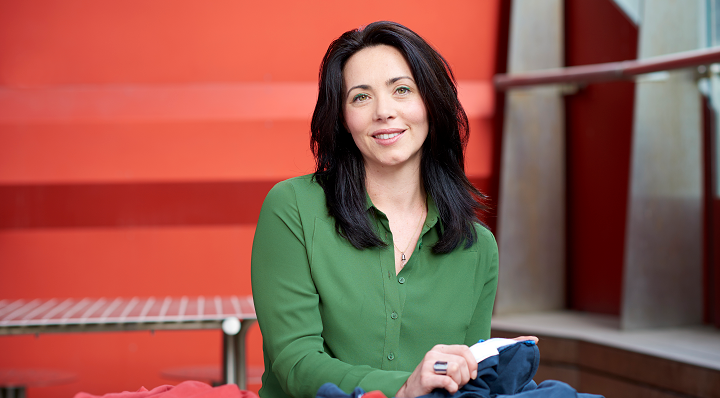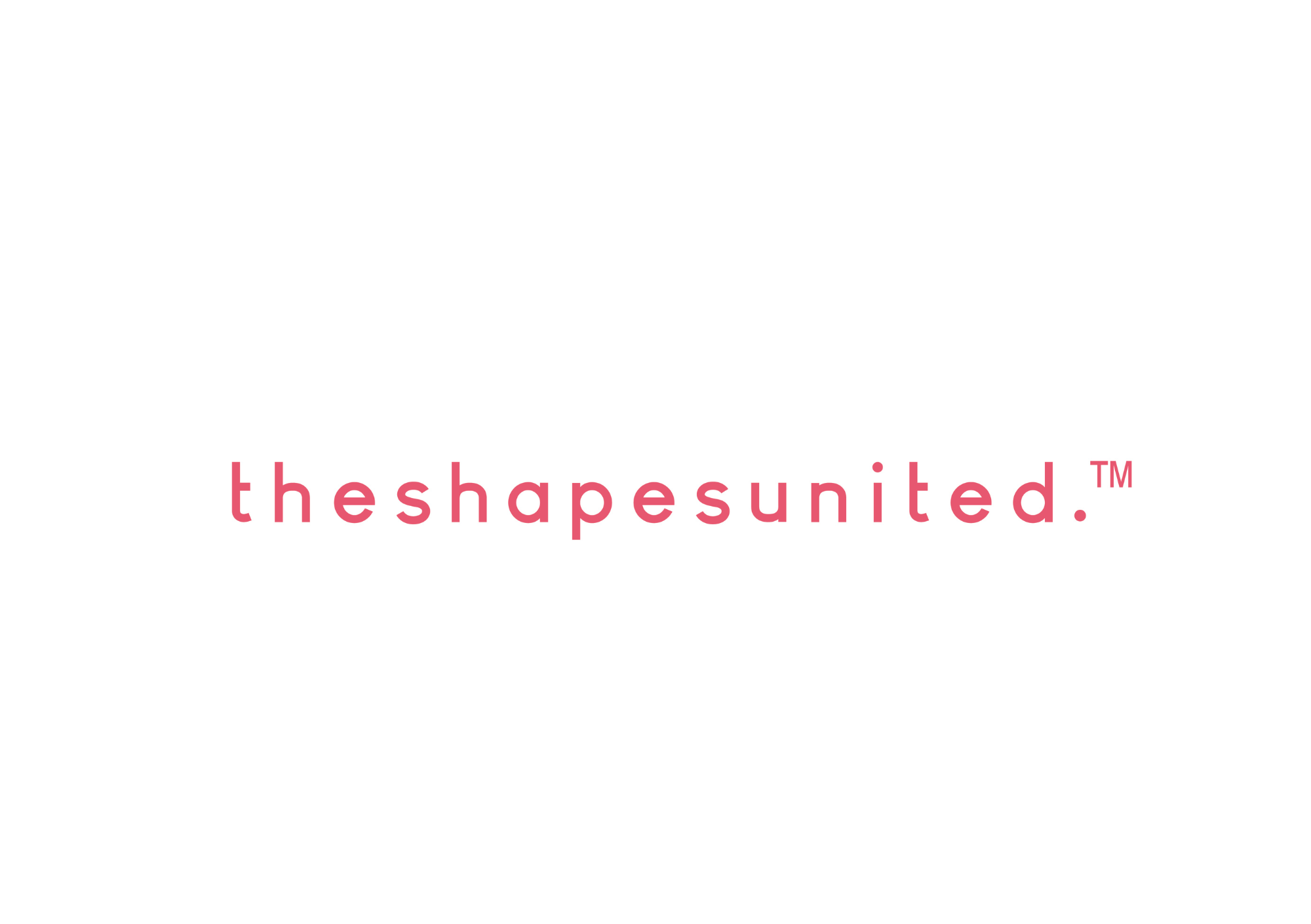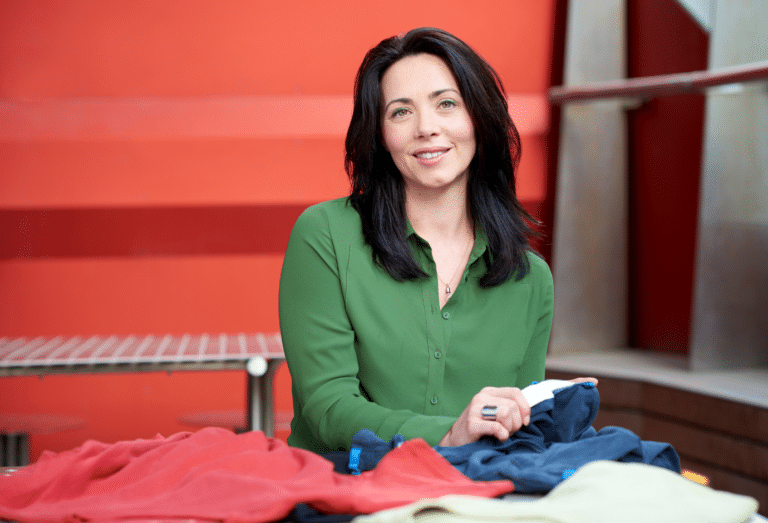In the emerging adaptive clothing marketplace, The Shapes United is at the cutting edge when it comes to product innovation.
Founded by fashion designer Penny Weber, the brand – which offers adaptive and sensory options for people of all shapes, sizes, needs and abilities – has recently added a “seated jeans” range to its collection.
The first of its kind in Australia, the jeans are specifically designed for people who use a wheelchair, or who spend most of their time sitting down. Locally made and sustainably produced, the jeans feature flat seams, no tags and a Velcro opening.
They also come without pockets – which can lead to pressure sores if sat on for long periods of time – as well as a high back, elastic waist and short leg cut.
Undoing assumptions
The idea for seated jeans came about after Weber spoke to a client at the Melbourne Disability Expo, whose clothing options were limited after his mother – who made clothes for him to wear in his corporate job – passed away.
Weber said that The Shapes United adjusted the client’s custom-made original design, and gave it a modern flair.
She also explained that the jeans were rigorously prototyped and tested to ensure that they worked in a functional sense, but also met the fashion needs of its target audience.
“The process of pattern-making is a little bit different to standardised clothing,” Weber told Inside Retail.
“You kind of need to untrain yourself from the standard way and really look at functionality, form and fit. It’s not to say that standard pattern-making doesn’t do that, but there’s a lot of assumptions that come in standard pattern-making that need to be undone to be adaptive.
“They look just like everyday jeans, but are thoughtfully, sustainably and locally made.”
Weber added that The Shapes United’s jeans are unique in that they weren’t retrofitted from a pre-existing product.
“We’ve gone more around usability and added the fashion dressing that needs to be there as well.”
Expressing themselves
Prior to The Shapes United, Weber founded and ran another brand, Recovawear, which offered adaptive clothing for people recovering from surgery. It was born out of Weber’s personal experience, where she was limited in her clothing options after recovering from a car accident.
She said that the fashion brand progressed as her customers had needs beyond the scope of Recovawear. This included wheelchair-users and people with limited mobility who weren’t offered easy-to-wear, and stylish, clothing options.
“[The goal] of Shapes United was to allow people the opportunity to express themselves in the best way they could,” she said.
“It’s taking those learnings of adaptability and customisation and adapting them to fashion retail.”
According to Weber, people who have difficulty dressing are often advised by medical professionals to wear clothes that are two to three sizes larger than their actual size.
As a result, their clothing options often don’t emulate how they want to look or feel in the world. She believes there’s strong opportunities for adaptive clothing to expand further in fashion retail.
“One in four Australians have a disability of some form, but there isn’t really a section in the department stores to cater for it,” she said.
Changes coming through
The Shapes United also has a sensory collection for people who are sensitive to the texture and feel of clothing.
Weber explained that the main irritants that people have with clothing are relatively simple to remove.
For instance, she noted that people with sensory issues wear T-shirts inside out, cut tags off their clothes, or wish to avoid putting their heads through a narrow opening.
As such, the brand’s sensory clothing is designed to alleviate those inhibitors.
“It’s [about using] flat seams, wider necklines, no labels, really soft material and making sure it’s cotton – as a cohort of people are allergic to polyester,” she said.
“Sensory clothing is all about enabling people to wear a standard piece of
clothing without the problems that can come with it.”
Weber believes that there has been some evolution in mainstream fashion around adaptive clothing. A growing number of retailers and brands, such as The Iconic, Everyhuman, Jam The Label and Christina Stephens, now offer clothing for people with disabilities. She added that some retailers have, almost accidentally, produced sensory clothing items.
“I think there’s changes coming through which is really great to see. It’s nice to
see adaptive clothing move more into fashion, and be less segregated,” she
said.
“If one quarter of our population has some sort of need, it really should be
catered for in the mainstream.
“It shouldn’t be put off in some little corner.”
IMAGE VIA THE SHAPES UNITED
WORDS BY ARON LEWIN.


